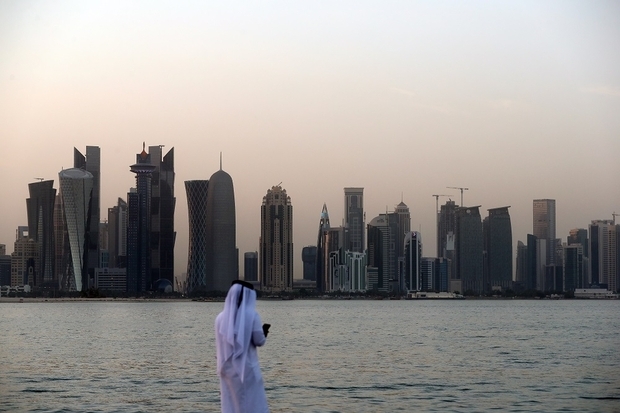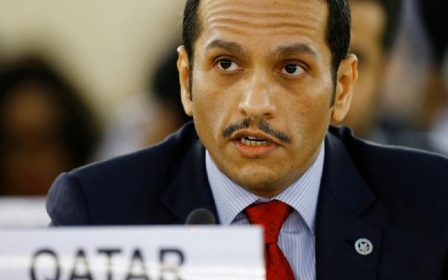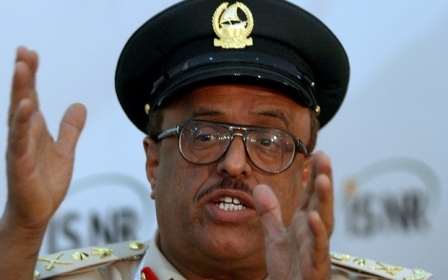Four Arab states renew 13 demands for Qatar

Four Arab states boycotting Qatar over alleged support for terrorism have renewed calls for Doha to adhere to a list of 13 demands they had put forward last year, including closing Al Jazeera, reducing ties to Iran and ending military cooperation with Turkey.
The demands which were put forth by Egypt, Saudi Arabia, the United Arab Emirates and Bahrain, came shortly after the countries imposed a blockade on Doha on 5 June, closing their airspace and territorial waters to Qatari planes and ships. They also severed diplomatic ties with the small Gulf state.
Egypt's foreign ministry spokesman Ahmed Abu Zeid said in a statement on the ministry's Facebook page on Monday that the top diplomats of the four countries "reviewed Qatar's recent provocative practises aiming to undermine the four countries’ interests and national security", stressing their "full solidarity" with one another.
US President Donald Trump last week praised Qatar's efforts to combat "terrorism and extremism" as the US president spoke by phone with the Gulf nation's emir.
Trump also reiterated his support for a united Gulf Cooperation Council (GCC) that is "focused on countering regional threats", a White House statement said.
"The president thanked the emir for Qatari action to counter terrorism and extremism in all forms," the statement added.
"The leaders discussed areas in which the United States and Qatar can partner to bring more stability to the region, counter malign Iranian influence, and defeat terrorism."
The seven-month-old Gulf crisis took a turn for the worse as the UAE accused Qatar's air force on 15 January of intercepting commercial aircraft flying from the UAE to Bahrain. Doha denied the allegations.
Previously, Qatar accused the UAE of “violating its airspace” with two fighter jets, in a letter addressed to the UN on 12 January. The UAE similarly denied the allegations.
After the Saudi-led nations imposed the blockade against Qatar, Trump appeared to approve of the move in a series of tweets.
Erdogan, meanwhile, has been a steadfast ally of Qatar during the blockade, deploying Turkish soldiers to a military base there and stepping up economic exchanges to help ensure necessary goods reached the Gulf country.
Doha is pursuing independent mediation to end the siege after a UN investigation said the blockade was negatively impacting the people of the region.
New MEE newsletter: Jerusalem Dispatch
Sign up to get the latest insights and analysis on Israel-Palestine, alongside Turkey Unpacked and other MEE newsletters
Middle East Eye delivers independent and unrivalled coverage and analysis of the Middle East, North Africa and beyond. To learn more about republishing this content and the associated fees, please fill out this form. More about MEE can be found here.




